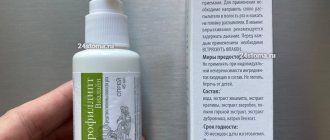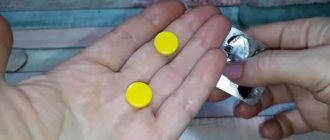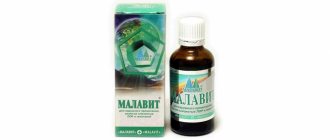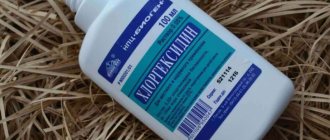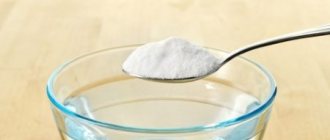Photo: iStock Trying to self-treat a sore throat can lead to serious problems.
Aif.ru talks about this with reference to otorhinolaryngologist Vladimir Zaitsev. For example, excessive use of inhalations can lead to increased swelling of the throat and suffocation. Steam inhalations are especially undesirable.
“The danger of inhalation in such a situation is that due to heat, swelling increases, and a person can easily simply suffocate,” the expert notes. In addition, inhalation should not be used when the patient’s temperature is high – more than 37.5 degrees. This can also cause swelling and suffocation.
How to use Iodinol in the treatment of stomatitis?
September 27, 2021, 10:17 Article expert: Daria Dmitrievna Blinova 5.755
- 1 Definition
- 2 Advantages and disadvantages
- 3 Use for stomatitis
- 4 In children
- 5 In adults
- 6 Precautions
- 7 Contraindications
- 8 Side effects
- 9 Analogues
When treating stomatitis, it is most effective to use iodine-based medications. They have a disinfecting effect and can be used in childhood. “Iodinol” for stomatitis is one of the best medicines and, when used correctly, is safe for the patient. If you use the medicine according to the instructions, you can cure inflammation of the oral cavity and nearby tissues in a matter of days.
The drug “Iodinol” is good at eliminating ulcers in the mouth, also providing a general antiseptic effect.
Analogues of the drug
Antiseptics containing iodine include the following drugs:
- Yox. This drug has a powerful anti-inflammatory and antimicrobial effect. Developed for external use in the treatment of ENT diseases, as well as stomatitis. Its active components help soften mucous membranes, relieve inflammation and restore damaged tissues and cells. Yox is produced in the form of a rinse solution and a spray. Apply the drug in the form of a spray 1-2 times a day, 2 injections. Use the solution to rinse the mouth 2-3 times a day. But just before that, dilute it with water in a ratio of 1:20.
- Lugol. This is an antiseptic that has proven itself in the treatment of inflammatory and infectious diseases of the oropharynx. It can be used by adults and children. The drug has a bactericidal effect on a number of gram-positive and gram-negative bacteria and pathogenic fungi. Lugol is produced in the form of a solution and spray for topical use. Use the aerosol 2 times a day, 2 injections. After this, do not eat or drink anything for 30 minutes. And the solution is suitable for spot treatment of ulcers and aphthae. Soak a cotton swab in the solution and apply to the affected areas of the cleaned mucous membrane. It is enough to carry out such events once a day.
- Povidone-iodine. Available in the form of a solution for external use. Its action is reduced to the elimination of microorganisms, without providing an irritating or cauterizing effect on tissues. After application, a thin colored film remains on the surface of the mucosa. It is maintained until the entire amount of iodine is released.
- Lugs. The drug contains iodine. It has an antimicrobial effect, resulting in the destruction of pathogenic microflora. It has an effect on E. coli, streptococci, staphylococci. Apply Lugs 1-2 times a day. The duration of therapy is determined taking into account the form and duration of the pathology. The drug is presented in the form of a spray; spray it by pressing the cap so that one irrigation is directed to the left, and the second to the right.
Iodinol is an effective iodine-based drug used to treat stomatitis. Its peculiarity is that it not only eliminates unpleasant symptoms, but also the cause of the inflammatory process - pathogenic fungi, bacteria and viruses. In addition, the drug is safe and very effective. But only use it in combination with other medications prescribed by your doctor.
Composition, release form and mechanism of action
The pharmaceutical drug “Iodinol” is produced in the form of a solution, which is used for the treatment of stomatitis in both children and adult patients. The composition contains the active substance - molecular iodine, as well as potassium iodide and polyvinyl alcohol. The solution is in bottles with a volume of 100 milliliters. With the help of the described medication, it is possible to prevent pathogenic microflora from entering the affected areas of the oral mucosa.
“Iodinol” prevents the spread of bacteria that are found in children due to poor hygiene or bad habits, for example, biting nails or eating unwashed food.
Our hero today is blue iodine
The very name of the drug indicates its relationship with iodine.
Iodinol is a liquid product with a strong antiseptic effect. It contains molecular iodine, potassium iodide alcohol and purified water. The liquid has a dark blue tint. If you shake the bottle, bubbles will appear in it. Polyvinyl alcohol contained in the preparation creates a delayed therapeutic effect of iodine. At the same time, the drug is completely devoid of toxicity. However, you should not use it in large quantities. This will cause burns.
Iodinol is an antiseptic that has a detrimental effect on fungi, bacteria and microbes that cause stomatitis. If a one-time rinse of the mouth with liquid has no effect on microbes, then repeated sessions are sure to give a positive result.
The product can be used to protect the body from epidemics of viral infections. It is completely harmless and can provide complete protection for the body.
The peculiarity of the drug lies in its ability to cover the affected areas with a film. This prevents further spread of the virus and completely destroys it. After using the medication, relapses are extremely rare, since Iodinol effectively affects ulcers caused by stomatitis for a long time after application.
pharmachologic effect
Iodine-containing agent with antiseptic effect. The main active ingredient is molecular iodine, which has antiseptic properties. When applied to large surfaces of the skin, iodine has a resorptive effect: it actively affects metabolism, enhances dissimilation processes, participates in the synthesis of T3 and T4, and has a proteolytic effect. Ethanol slows down the excretion of iodine and reduces its irritating effect on tissue.
It has a bactericidal effect on gram-positive and gram-negative flora (most active on streptococcal flora and Escherichia coli, Proteus), as well as on pathogenic fungi and yeast. Causes the death of spores of the causative agent of anthrax (at a concentration of 1% free iodine for 30 minutes). A more resistant flora is staphylococcus, however, with long-term use of the drug, suppression of the staphylococcal flora is observed in 80% of cases. Pseudomonas aeruginosa is resistant.
Analogs
If we compare the entire range of Iodinol’s capabilities, then we cannot find a 100% analogue to it, because the scope of the drug is extremely wide. Used for thrush, runny nose, pain, stomatitis, sore throat, diluted to rinse the nose and mouth, treat and smear affected areas of the skin and much more. But you can choose medications depending on the disease. Analogs include such drugs as:
- Lugol is an antiseptic. Used in the treatment of diseases of the throat and oral cavity.
- Malavit eliminates skin problems and diseases of the upper respiratory tract. It is actively used in gynecology and dentistry. Effective in the treatment of stomatitis, relieves itching and pain. Treats burns, wounds, frostbite, hematomas, neuritis, dermatitis, vascular disorders and insect bites.
- Doxycycline is used to treat respiratory tract, sore throat and other ENT diseases.
- Betadine is a 10% medicinal solution that is used in: dentistry, surgery, traumatology, gynecology and ophthalmology. It is used for preventive purposes for wound tissue damage, for rinsing, disinfecting skin, treating ulcers and burns.
- Vitaon is a medicinal product effective for lesions and damage to skin tissue and mucous membranes, for sore throat, for rinsing the mouth and throat, treating burns of various types and degrees of complexity, and treating respiratory diseases.
- Bimmunal fights allergic reactions, works against dysbiosis, stomatitis, intestinal infections, food intoxication.
- Citeal is intended for the treatment of various types of bacterial infections.
- Exasprey can be used for pathologies of the nose and mouth caused by a fungal infection.
- Pharmaseptic is an auxiliary drug that is used in dentistry for rinsing the mouth.
- Boric acid is used to treat dermatitis and otitis.
- Yoddicerin is a good substitute for the treatment of burn wounds and frostbite, and is an adjuvant for stomatitis.
How to treat ulcerative stomatitis?
Effective treatment of Vincent's ulcerative stomatitis should be comprehensive:
- Anesthesia – performed to relieve acute pain. Experts recommend applying compresses with pain-relieving solutions.
- Removing rashes. This should only be done by a doctor. First, compresses with a softening composition are applied to the ulcers, after which the crusts are gradually cleared from the surface of the mucosa, treating with hydrogen peroxide, potassium permanganate, chlorhexidine, etc.
- General treatment. It involves taking antihistamines that relieve general tissue irritation and the inflammatory process. For severe manifestations and complex symptoms, antibiotic therapy is prescribed. It is also recommended to take a course of vitamin therapy.
- Sanitation of the oral cavity. Effective treatment of caries, removal of pathological teeth. For wound healing, treatment with keratoplasty preparations, gels and ointments is recommended.
Features of treatment with Iodinol
Among the main indications for the treatment of stomatitis with iodine preparations are:
- rashes on the lips, inner cheeks, gums, palate;
- traumatic stomatitis, when there is a risk of secondary infection;
- the presence of herpes, prevention of the spread of herpes infection into the oral cavity;
- purulent inflammation in the oral cavity, the presence of aphthae, ulcers, thermal or chemical burns;
- stomatitis, which is accompanied by bad breath and exudate from the affected areas.
Main contraindications for the use of iodine in children and adults:
- allergic reactions, increased inflammation after using iodine;
- hypersensitivity to iodine preparations;
- improper use of the product, failure to follow instructions;
- diseases of the thyroid gland – thyrotoxicosis.
A relative contraindication may be stomatitis caused by a thermal factor. Treating a burn with iodine can only increase inflammation, since iodine itself cauterizes wounds. In this case, it is very important to follow the dosage and not get carried away with frequent lubrication of the mucous membrane.
The effectiveness of iodine treatment is individual for everyone; you can see the result 7-10 after the start of rinsing, lotions and lubrication. If the stomatitis is primary, cure is guaranteed. Treatment of secondary stomatitis with iodine will only temporarily relieve the symptomatic complex, but the disease will return again.
Contraindications and side effects
The drug cannot be used in the treatment of stomatitis if you have diseases of the thyroid gland, gastrointestinal tract or are allergic to the components included in the composition. Also, Iodinol should not be used by children under 5 years of age, pregnant women and patients with diathesis and tuberculosis.
And although side symptoms are extremely rare, they are characterized by the following features:
- skin rash;
- redness on the skin;
- nervous system disorder;
- runny nose;
- swelling;
- sleep disturbance;
- failure of the heart;
- general weakness;
- increased sweat production.
Attention! If the patient experiences these symptoms, stop taking the drug and immediately consult a doctor. Continuing treatment will lead to serious consequences and a more severe degree of stomatitis.
Side effects, overdose
If the drug is used for treatment not according to the instructions, a person may experience various undesirable symptoms. This usually does not occur when Iodinol is used as directed without overdose. An exception may be the situation when the patient has hypersensitivity to the components of the formula. In case of intolerance to the drug, note:
- local tissue irritation;
- rashes, allergies;
- breathing disorder.
If the product is ingested (when gargling) and iodism develops, the following symptoms occur:
- respiratory depression;
- sore throat;
- burning in the mouth;
- metallic taste;
- increased salivation;
- the appearance of skin allergies;
- any disorders of the gastrointestinal tract - nausea, indigestion, vomiting, cramps;
- swelling of the eyelids, redness of the eyes.
If salivation increases as a result of treatment with iodinol, angioedema or other phenomena not specified in the instructions for use occur, it is necessary to rinse the stomach and immediately call a doctor
Advice. Treatment is symptomatic. In this case, it is necessary to check the functioning of the thyroid gland.
If the drug is taken orally, tachycardia may develop, insomnia or sweating may occur.
What are you going to fight against?
Stomatitis is an inflammatory disease of the oral mucosa. Also among the symptoms are numerous painful ulcers and blisters on the palate, tongue, and cheeks. They cause discomfort and pain. If treatment is not taken in time, ulcers and erosions can become chronic and deprive a person of a calm, familiar life. The causes of stomatitis are varied. Among the most common are the following:
- weakened immunity;
- hypothermia;
- the presence of viral diseases;
- smoking;
- stressful situations;
- malocclusion;
- failure to comply with oral hygiene rules;
- food that irritates the mucous membrane.
There are many reasons, but stomatitis is provoked by a weakened immune system. Depending on the type of pathogen, several types of disease are distinguished:
- infectious;
- candida;
- traumatic;
- allergic;
- aphthous.
Aphthae in the mouth is the number one “goal” for Iodinol
With the viral type, bubbles appear in the mouth, with the fungal type - bubbles and copious saliva, with the bacterial type - white plaque and redness.
The traumatic type of disease appears due to damage to the cheeks, tongue or palate. The allergic type is caused by a protein or other allergen. Symptoms include swelling and severe itching in the mouth.
Aphthous stomatitis is associated with stomach diseases and viral infections.
Patient reviews of iodinol
“Iodinol” has been familiar to me since childhood. My mother also used a solution of this remedy and rubbed my throat when I was sick. She made a cotton swab on her finger, soaked it in the solution and smeared it on my throat. This procedure is not pleasant and not every child can handle it! And I make a rinse solution for my children. A few drops per glass of water. I gargle myself in a different proportion - a tablespoon per glass of water. “Iodinol” tastes unpleasant, but the effect is worth it! I didn't notice any side effects. The cost of the drug is a penny, 15 rubles. for 100 ml. The benefits are obvious. I recommend!
I have had experience with Iodinol for a long time. My mother used it when she was a child. Previously, it was just a mesh on the neck and chest area. Now I buy it myself all the time. We always have it in our first aid kit. It is very convenient that at present it is sold in the form of a spray. When my throat starts to hurt, I immediately start spraying it. The best remedy for a sore throat for me! It helps better than all kinds of lollipops and a sea of other remedies. I also spray it on children when the doctor reports a red throat. And sometimes, even when I have a cold, I immediately start spraying it on my children’s necks. So as not to launch. It will not be worse. The price is small. I recommend it.
Instructions for use
Children, like adults, can be treated by rinsing with Iodinol solution. But the dose of the medicine and the method of administration differ in each individual case.
Rinsing the mouth for stomatitis is done with a solution of Iodinol in a one-to-one ratio with water. Therapeutic lotions help a lot. A clean piece of gauze should be moistened in the solution and placed on the aphthae, holding it for no more than a minute. After which you should rinse your mouth with a soda solution.
If herpetic stomatitis is diagnosed, then it is necessary to treat the rashes with a cotton swab dipped in Iodinol solution, simultaneously removing dried crusts. There may be some minor bleeding, but this is not something to worry about.
During this period, you do not need to use the product often, it will not help you recover quickly, but severe irritation of the mucous membrane is possible. It will only worsen the situation and launch a new round of the disease with renewed vigor. There is no need to overdo it with the medication.
Before using the medicine, you should thoroughly clean the oral cavity and sanitize it. You need to brush your teeth, rinse your throat and mouth. These procedures are mandatory at any age. The therapeutic effect of the medicine will increase if it is applied to a clean mucous membrane.
For advanced forms of stomatitis, rinsing with Iodinol alone will not be enough. You should consult your doctor to prescribe additional medications.
It is prohibited to use multiple medications on your own; this can lead to intoxication and serious health problems.
Features of treatment for children
Ulcers in children can be treated with a stick or cotton wool wrapped around a match
Treatment of stomatitis with Iodinol in children under 5 years of age using rinses is not recommended, since the risk of ingesting large amounts of the solution is high. Instead, you can anoint the inflamed areas with an ear stick.
To rinse the mouth, a child over 5 years old needs to dilute 50 ml of blue iodine in a glass of water. This solution can be used to wash the mucous membranes of children. It can be used throughout the day, following the procedure after meals.
The product is completely harmless, although it contains alcohol, which makes iodine less toxic and harsh. Avoid using this medicine due to its alcohol content. The effectiveness and safety of this treatment is extremely high.
How to rinse your mouth
Rinsing the mouth is both a hygienic and therapeutic procedure. For rinsing, pharmaceutical products, self-prepared decoctions, tinctures, and solutions are used. Ready-made solutions - rotokan, hydrogen peroxide, chlorhexidine, furatsilin, miramistin - have proven antiseptic properties.
Homemade herbal remedies additionally soothe and relieve pain in inflamed tissues.
Below we will talk in detail about drugs that help get rid of stomatitis at home.
The main causes of ulcerative necrotic stomatitis
The main causative agents of the disease are pathological bacteria (in particular, Vincent's spirochete), which actively develop in the oral cavity, especially in the space between the dental units. They are present in the cavity of an absolutely healthy person, but when exposed to certain factors, they actively multiply and provoke a pathological process.
Prerequisites for the development of the disease:
- advanced stages of catarrhal gingivitis;
- abundant carious lesions of teeth;
- tartar;
- weak immunity;
- insufficient oral hygiene;
- lack of cavity sanitation;
- viral diseases;
- mechanical injuries to gums and teeth;
- suffered stress, depressive states;
- taking strong medications.
Interaction with other drugs
It is permissible to combine Shostakovsky balm with Hexoral, Iodinol and Inhalipt. You can also rinse your mouth with a saline solution, a decoction of sage, calendula and chamomile.
“Vinilin” is used very often for stomatitis in children, since it is considered a safe drug for all age groups of patients. Only its oral administration is limited, and for external use it can be used both in infants and in the elderly.
vote
Article rating
How to treat ulcerative stomatitis with diet?
Diet alone will not be enough to completely cure the disease, but it is mandatory to speed up the recovery process. With such a diagnosis, it is very important to devote time to proper nutrition.
For stomatitis, the following products are recommended: vegetables, fruits, viscous porridges, greens, milk and dairy products, cheese, soups, herbal infusions, green tea, steamed meat without salt, low-fat fish, natural vegetable juices.
Patients with this disease are not recommended to eat: sour fruits and vegetables, citrus fruits, pickled and peppered foods. Also not recommended are foods that provoke allergies, too sweet foods, dry foods and those foods that can cause mechanical damage to the mucous membrane (nuts, crackers, dried fruits, etc.).


